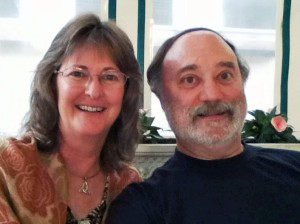Dear Brothers and Sisters in Christ,
 In our high-tech world, all it takes to make a fake ID is some photo paper, a couple of laminating sheets and an ability to use retouching software. A survey of 1000 U.S. university students (reported on LiveScience.com) found that two-thirds had fake IDs—typically used to gain entry to dance clubs and bars. While these students pretend to be someone they are not for the sake of under-age drinking, many people in our world experience the ongoing pain and frustration of a much deeper identity crisis.
In our high-tech world, all it takes to make a fake ID is some photo paper, a couple of laminating sheets and an ability to use retouching software. A survey of 1000 U.S. university students (reported on LiveScience.com) found that two-thirds had fake IDs—typically used to gain entry to dance clubs and bars. While these students pretend to be someone they are not for the sake of under-age drinking, many people in our world experience the ongoing pain and frustration of a much deeper identity crisis.
In writing about this crisis, Henri Nouwen noted that for most people, identity is a function of three factors: what they do, what others say about them and what they possess. When they do well, they feel good about themselves. But when they do poorly, they feel bad. When the apostle Paul assessed himself by his own performance he declared this: “What a wretched man I am!” (Romans 7:24). Fortunately, Paul learned that his true identity resided in Christ, not in his own Law-based performance.
When our identity is grounded in the factors mentioned by Nouwen, our emotions will run the full gamut. When we’re affirmed, we’ll feel good. But when people speak ill of us, we’ll be devastated. This is especially true when people speak religious-sounding “you are not” statements like these: “You are not known by God—not forgiven—not worthy—not important—not loved.” Such statements cause us to question our value and can lead to a self-identity that is grounded in shame and even self-loathing.
Sadly, much of humanity lives under the terrible burden of a badly mistaken identity. Why? Because they do not know Jesus the incarnate, crucified, ascended Son of God and son of man. Not knowing they are God’s beloved children in union with Christ, they think that they are self-sufficient and must make their own way. But an identity disconnected from the truth about humanity in Christ, is a mistaken one that leads eventually to frustration and pain.

What people need is to hear is the message proclaimed by the angels to shepherds on the night of Jesus’ birth: “Do not be afraid. I bring you good news that will cause great joy for all the people.” This news comes with a wonderful promise: “Peace to those on whom his [God’s] favor rests.” Yes, there is joy and peace in knowing that God sent his Son to become one of us, to speak our language, to feel our pain and to show us that God forgives us no matter what we’ve done. Even when we try to run from him, or act as if he is not there, or refuse his help, God remains our loving Father, our Abba. That good news of God’s grace defines our true identity as God’s beloved children. It’s good news that needs to be shared with others—indeed, doing so is our mission.
The reality of God’s love and grace does not mean that God has turned a blind eye to evil. No, God hates evil because it hurts his children. Evil destroys right relationship with God and promotes lies about his nature and character. In Jesus, God dealt decisively with evil—taking upon himself the suffering it brings, showing that he alone has the right to forgive sin. In Christ, the barrier between God and humanity caused by evil is torn down. This truth calls upon us to live in the light of who God is and who we are in relationship with him. Yes, we can return to a fake identity if that’s what we want, but who would want that?
Scripture is clear: we were dead but now are alive; lost but now are found (Luke 15:24). We were dead in sin but now are alive to God in Christ (Romans 6:11). We were in darkness but now the light of Christ has dispelled the darkness (2 Peter 1:19). Remember Paul’s words to the church at Corinth:
Therefore, if anyone is in Christ, he is a new creation; the old has gone, the new has come! All this is from God, who reconciled us to himself through Christ and gave us the ministry of reconciliation: that God was reconciling the world to himself in Christ, not counting men’s sins against them. And he has committed to us the message of reconciliation. We are therefore Christ’s ambassadors, as though God were making his appeal through us. We implore you on Christ’s behalf: Be reconciled to God. God made him who had no sin to be sin for us, so that in him we might become the righteousness of God (2 Corinthians 5:17-21).
From God’s perspective, the astounding change from “out of Christ” (dead) to “in Christ” (alive) took place in an instant. But for us, it’s often a long journey of awakening to this stunning reality. It can take time to fully embrace the truth of our true identity in Christ. That identity is not a function of what we do, what others say about us, or what we possess. Our true identity is in Christ—our sharing in who he is and what he has done. It’s also based on what Christ continues to do—on his continuing ministry by which he administers God’s unconditional love and grace to undeserving sinners. What the Father said to Jesus at his baptism, he now says to us: “You are my child, whom I love; with you I am well pleased.” That, dear one, is your true identity. Embrace it!
Living in my true identity,
Joseph Tkach



Somewhere I got the following quote…
“Understanding our true identity will make all the difference in the world as to whether we approach life feeling inadequate, guilty, rejected, and lonely, or whether we are filled with confidence, certainty, acceptance, love and warmth. It will make all the difference in the world as to how we begin each day, and how we think of ourselves before God. If we don’t see ourselves as a worthwhile person, accepted before God and of great importance to him, then we cannot see anyone else that way. We will begin to demand performance of others in order to accept them.We will not be able to forgive others. We will be caught up in a web of perfectionism in which we are constantly feeling guilty ourselves.”